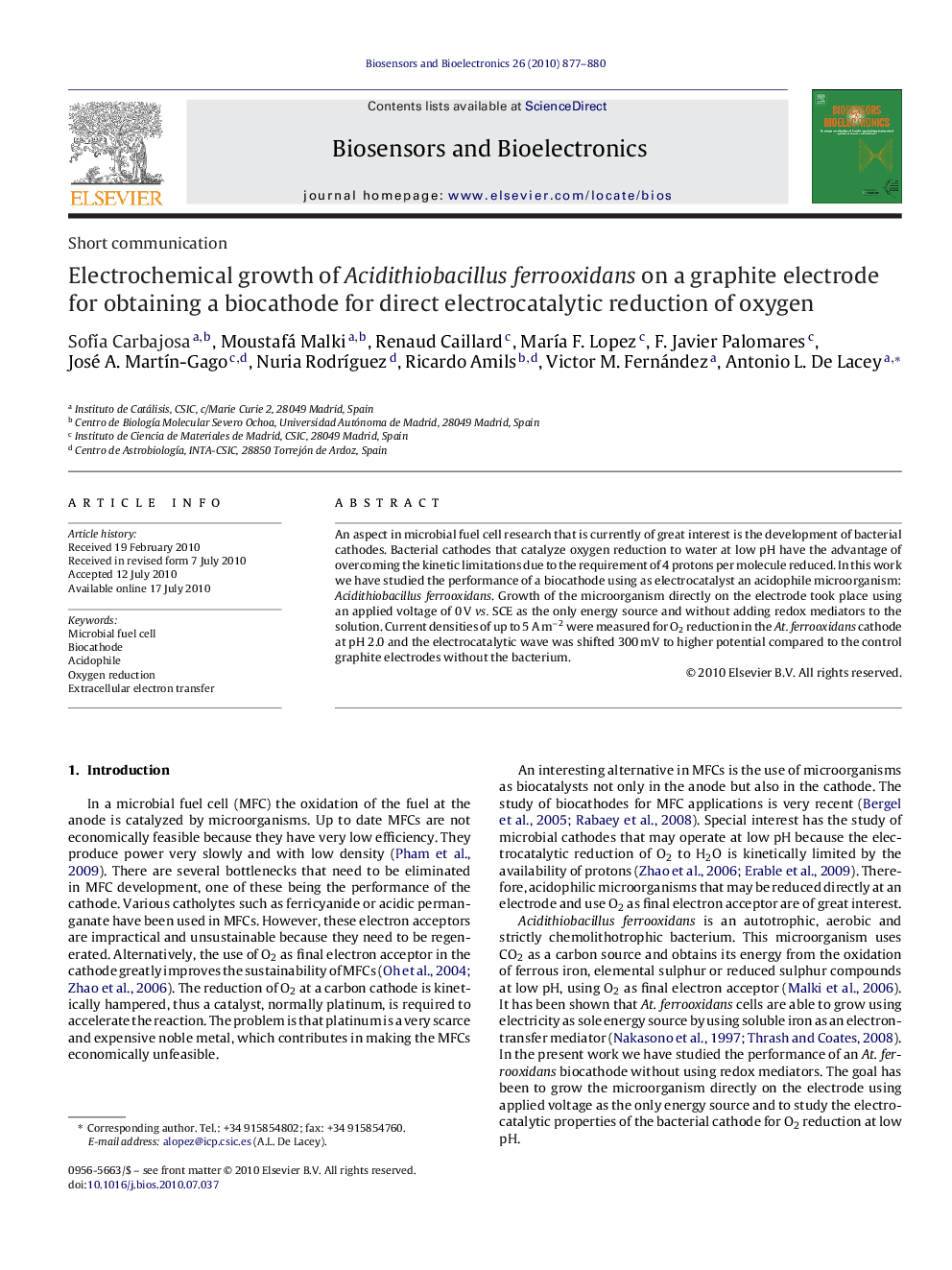| Article ID | Journal | Published Year | Pages | File Type |
|---|---|---|---|---|
| 868625 | Biosensors and Bioelectronics | 2010 | 4 Pages |
An aspect in microbial fuel cell research that is currently of great interest is the development of bacterial cathodes. Bacterial cathodes that catalyze oxygen reduction to water at low pH have the advantage of overcoming the kinetic limitations due to the requirement of 4 protons per molecule reduced. In this work we have studied the performance of a biocathode using as electrocatalyst an acidophile microorganism: Acidithiobacillus ferrooxidans. Growth of the microorganism directly on the electrode took place using an applied voltage of 0 V vs. SCE as the only energy source and without adding redox mediators to the solution. Current densities of up to 5 A m−2 were measured for O2 reduction in the At. ferrooxidans cathode at pH 2.0 and the electrocatalytic wave was shifted 300 mV to higher potential compared to the control graphite electrodes without the bacterium.
